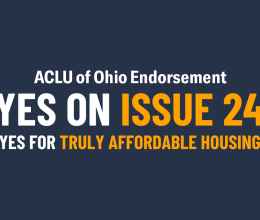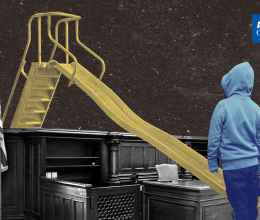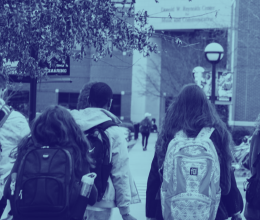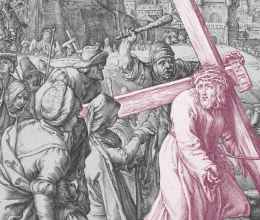Photograph Dan Paluska via Flickr Creative Commons
I am a Caribbean woman by way of the Dominican Republic. I wear my hair in a natural, curly afro.
I also work for the ACLU of Ohio. Often, I find myself on the receiving end of the racial profiling that I work to end, and air travel is a good example.
Personal Experiences
Flying out of New York, I once was asked by a Transportation Security Administration (TSA) agent to unbuckle my bra and shake it in the crowded airport.
Another time, my excitement was quickly replaced with irritation after a successful lobby day in Washington D.C., when I was asked to accompany two female TSA agents to a private room. In the room I was subjected to an extended search that included removing my suit jacket and unzipping my dress.
Like many people of color, I asked, “Why me?’
I wondered if it was my name. Shakyra may sound strange to some not-so-enlightened people. Maybe it was the type of clothing I was wearing.
Suits and business casual attire soon were replaced with athletic clothing, tennis shoes, and sports bras. I found a way to beat the humiliation of air travel, or so I thought.
But since then, TSA agents have checked my:
- Ankles for explosives.
- Shoulders for metal.
- Hands for gun powder. (Last I checked, I have a Second Amendment right to own a firearm, and I also have the right to go to a gun range for target practice.)
In my own head, I tried to lessen the humiliation by telling myself, “Well, at least they haven’t touched my hair.”
Unreasonable Searches and Selective Enforcement
A few months ago, I was flying out of New Mexico. I made my way through the body scanner. Once on the other side, and before I could even respond, a TSA agent said, with her hands already in my hair, “I need to check your hair.”
I felt vulnerable and violated as the agent fingered through my fro.
Unfortunately, this experience is not uncommon. Black women who wear their hair in natural hairstyles are routinely singled out in airports for hair searches—despite walking through body scanners that can see through our clothing. In my world, we call that racial profiling.
Black women who wear their hair in natural hairstyles are routinely singled out in airports for hair searches—despite walking through body scanners that can see through our clothing.
ACLU staff attorney Novella Coleman and her client Malaika Singleton, who both wear locks, were singled out for hair pat-downs. In 2014, the ACLU and Malaika Singleton filed a joint complaint regarding the discriminatory search.
TSA recently responded by issuing a statement that the agency will now conduct anti-discrimination training sessions with its agents to avoid racial profiling by way of hair. Also, the agency will begin tracking hair pat-down complaints.
Why is this issue so important?
Unreasonable searches and selective enforcement are prohibited by law, and so is profiling based on race and, by extension, hair texture. I hope that tracking and training will eliminate these clearly illegal searches that black women experience when traveling. But I won’t hold my breath, nor will I straighten my hair to get on a plane.







